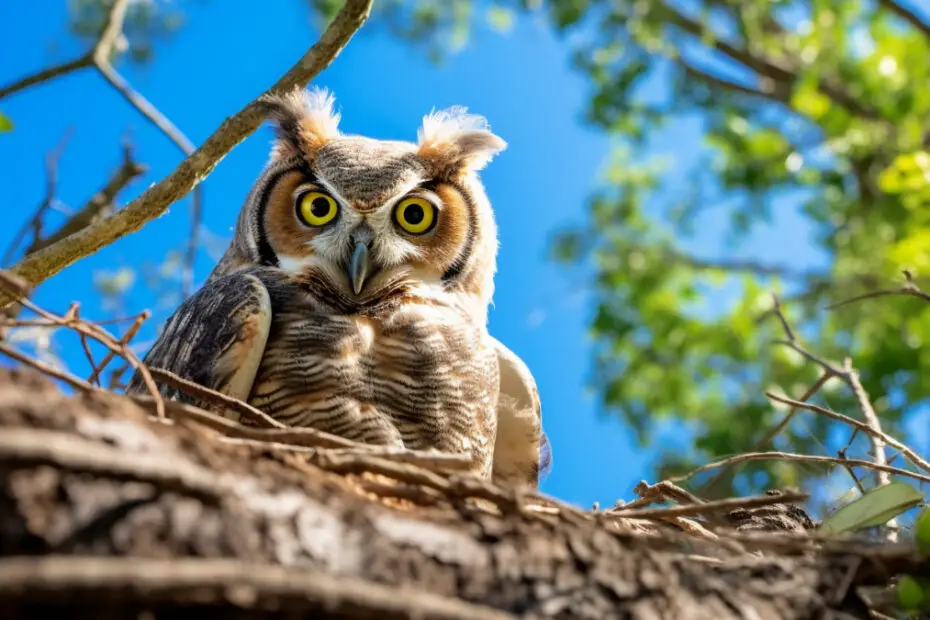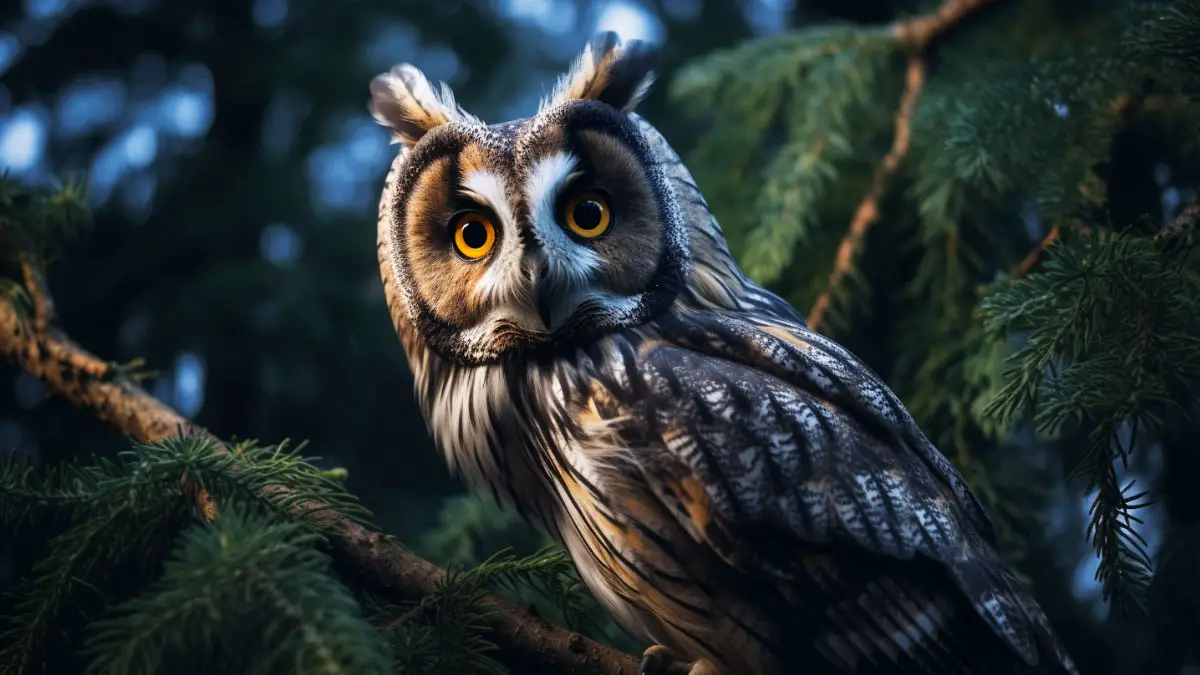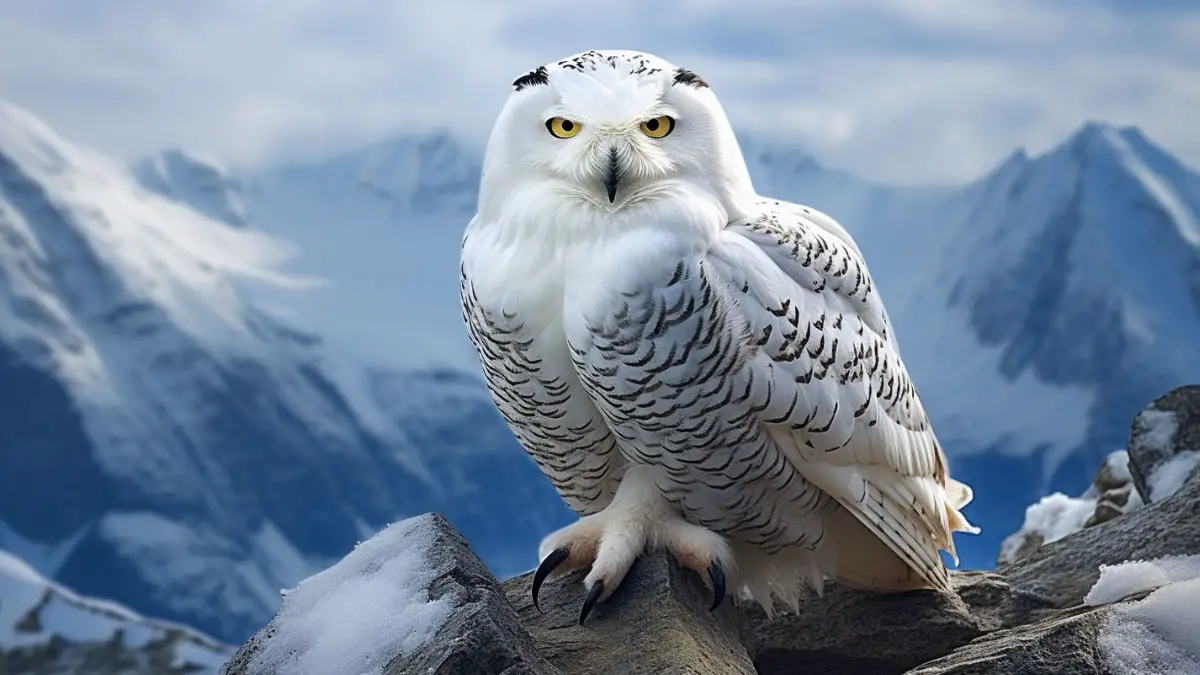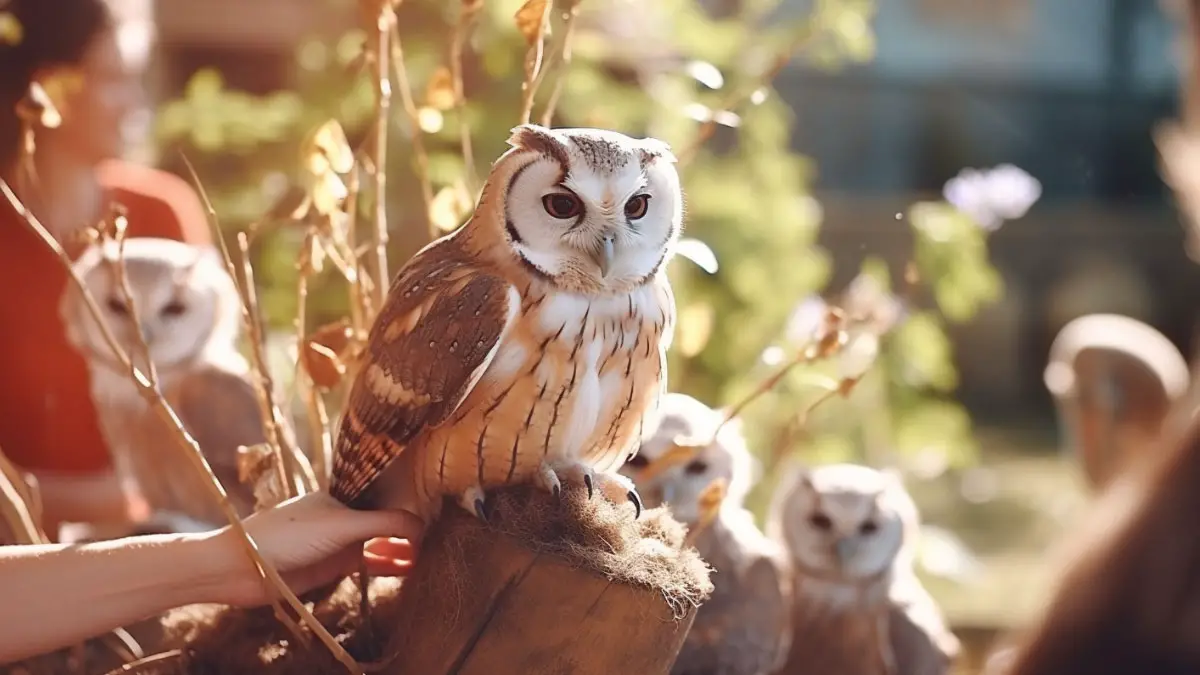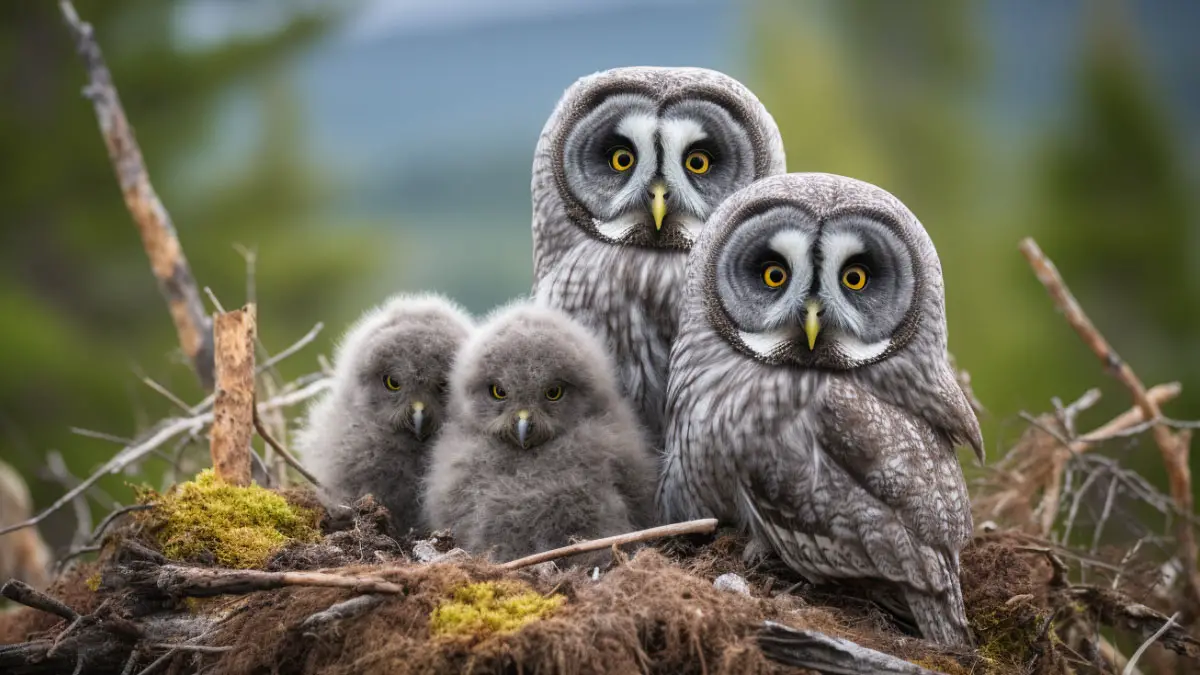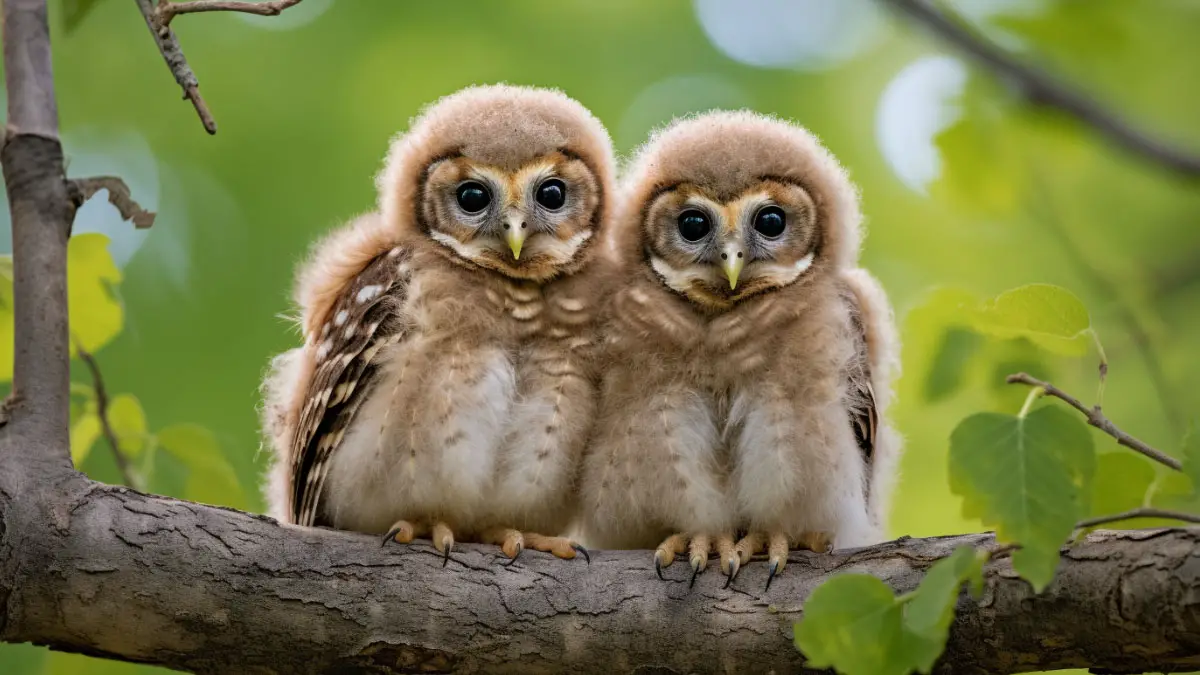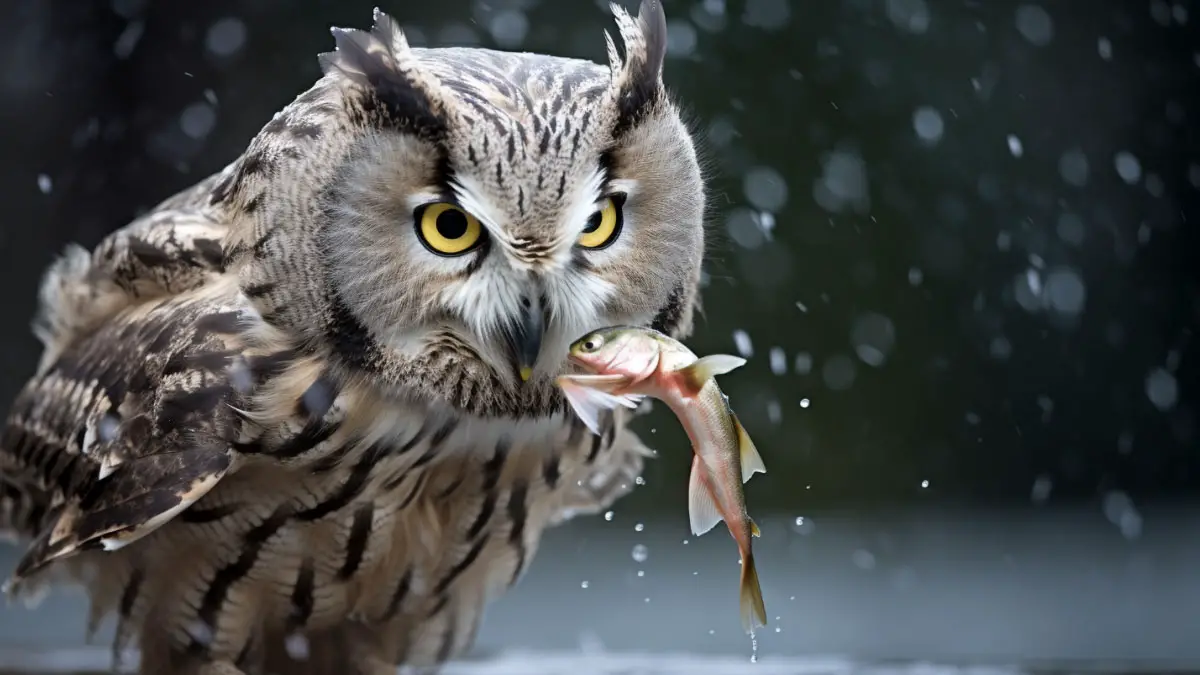The great horned owl is one of the most feared predatory birds. Part of this is due to their great hunting skills and the ability to kill animals even larger than them. So, what do Great Horned owls eat?
A Great Horned Owl eats almost anything that is smaller than them. They eat small mammals such as rats, rabbits, and squirrels. Smaller birds can also fall prey to them. They can also eat snakes and insects, such as scorpions.
But that’s not all. There are surprising things that these owls eat. So, let’s go through their dietary habits right in this article today.
What Do Great Horned Owls Eat?
The Great Horned Owl mostly eats small mammals such as rats and rabbits. They can also prey on small birds such as ducks. Amphibians are rarely found in their diet, but that can change depending on their habitat.
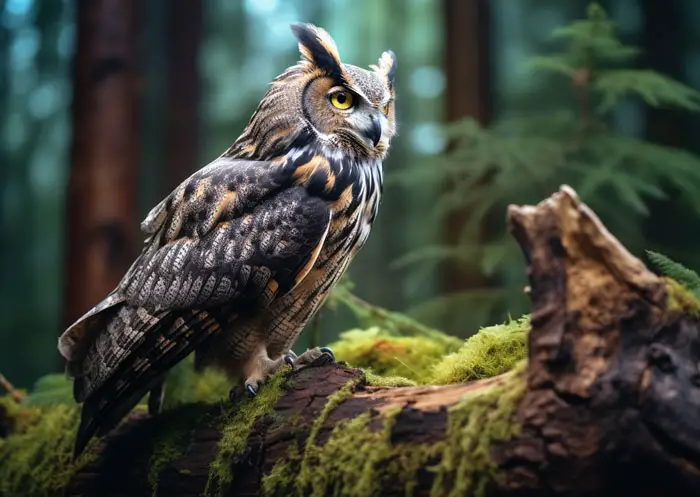
This is a complete list of animals that Great Horned Owls eat:
- Mice
- Rabbit
- Hare
- Skunk
- Porcupine
- Small Owls
- Hawks
- Ducks
- Geese
- Snake
- Small frogs
- Fish
- Bugs
- Lizards
- Crows
Frogs and fishes are rarely part of their diet. These are far less common in terms of their eating habits. But if an owl has settled in a place with water nearby, it will not forget to indulge in it.
The Great Horned Owls are also known to attack other predatory birds such as hawks, eagles, and even other owls from the same species.
What Do Baby Great Horned Owls Eat?
The childlings of the Great Horned Owl eat the same food as its parent. Its food mostly contains flesh from small mammals such as mice, rabbits, or squirrels. The female owl will tear the food into small pieces, which the baby owls feed on.
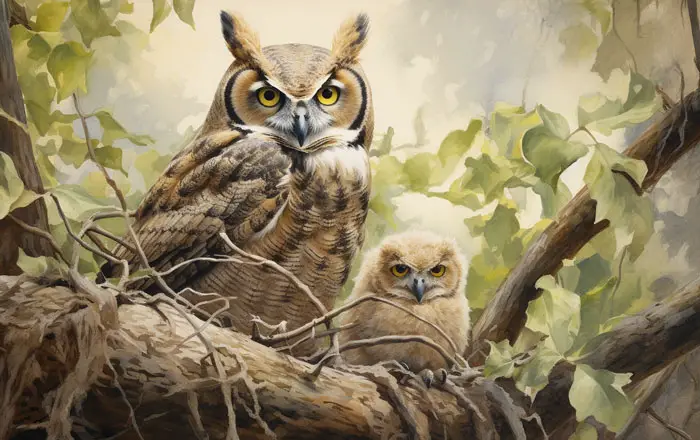
When the baby owl is small, it cannot swallow the entire food as a whole. Only after reaching the age of 3 weeks can they swallow a small animal such as a mouse.
When And How Do The Great Horned Owls Hunt For Their Food?
The Great Horned Owl hunts during the night and at dusk. They have great vision and hearing, which allows them to locate the prey from afar. They do not hunt during the day, but that can change if the food is scarce.
Owls have great hearing due to a special facial feature. The fur near their ears is rounded in shape. This allows them to reflect any sound from the surroundings into their ears. As a result, they can hear the faintest of sounds, such as the rustling of grass or the movement of birds.
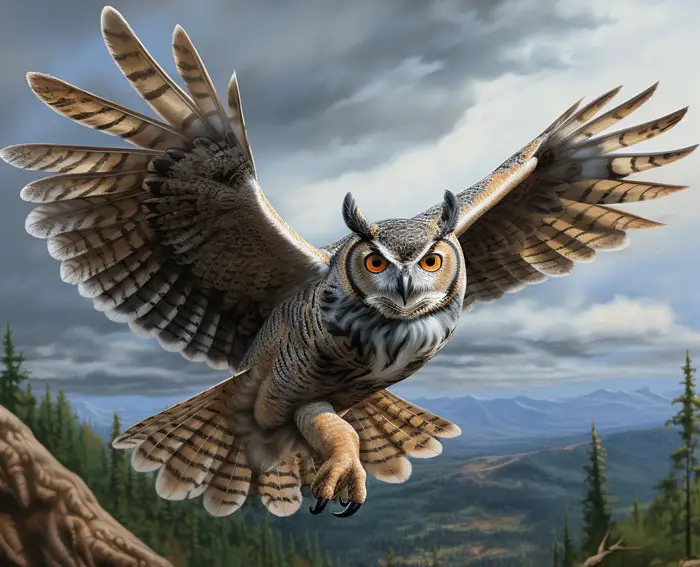
The hunting process of owls is quite fascinating. They have eyes that can see clearly during the night. These help them to locate the prey once they have heard any noise.
A pair of fringed wings are present that remain completely silent when the owl takes off. So, the prey has no idea that its predator is on its way. Sometimes, the owl will fly away to a certain distance and return to swoop in on its prey.
The owl lands directly on its prey, inserting its talons with great force. They are razor-sharp and can cut really deep, killing the animal instantly. It then flies away and takes its prey to a higher branch or nest. There, it will swallow it entirely. If there are baby owls in the nest, the mother shreds the prey’s flesh and feeds to the younger ones.
What Predators Do Hunt On Great Horned Owls?
The Great Horned Owl generally doesn’t have any predators. They are right at the top of their food chain. But eagles and hawks can attack owls when they are fighting for the same territory. Under normal circumstances, they do not fight at all.
But young owls can become the target of small foxes, crows, and raccoons. Eagles, however, are known to eat the eggs of owls. So, if there is an owl nest nearby, an eagle will definitely go and take a look inside.
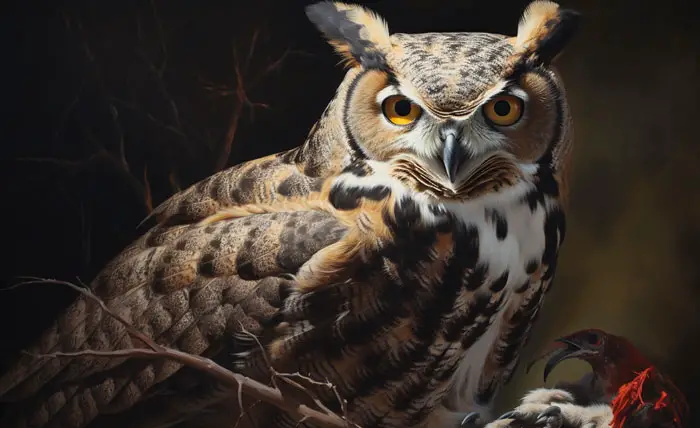
Related Questions
Now you know what’s on the menu for the Great Horned Owl. Here I will answer some more questions relating to its food, which people normally ask.
The Great Horned Owl competes with other predatory birds, such as hawks and eagles, for its food. Their diet is also similar, consisting of small mammals and birds. So, they will often fight for food and nesting places.
While most owls hunt small mammals and birds, some large owls, such as the Eagle Owl, can hunt for rabbits, hares, or even small foxes. They also prey on geese, songbirds, and even owls that are their size.
During the winter, the Great Horned Owl looks to hunt the active mammals. Small rodents, rabbits, and hares are the usual food they eat during the winter.
Conclusion
In this article, we discussed the dietary habits of the Great Horned Owl. They are some of the best predatory birds in the same class as hawks and eagles.
Unsurprisingly, small mammals and birds make the most of their meals. But they can eat almost anything if there is a shortage of food.
So, that’s it for this article. Hope you enjoyed reading it.
